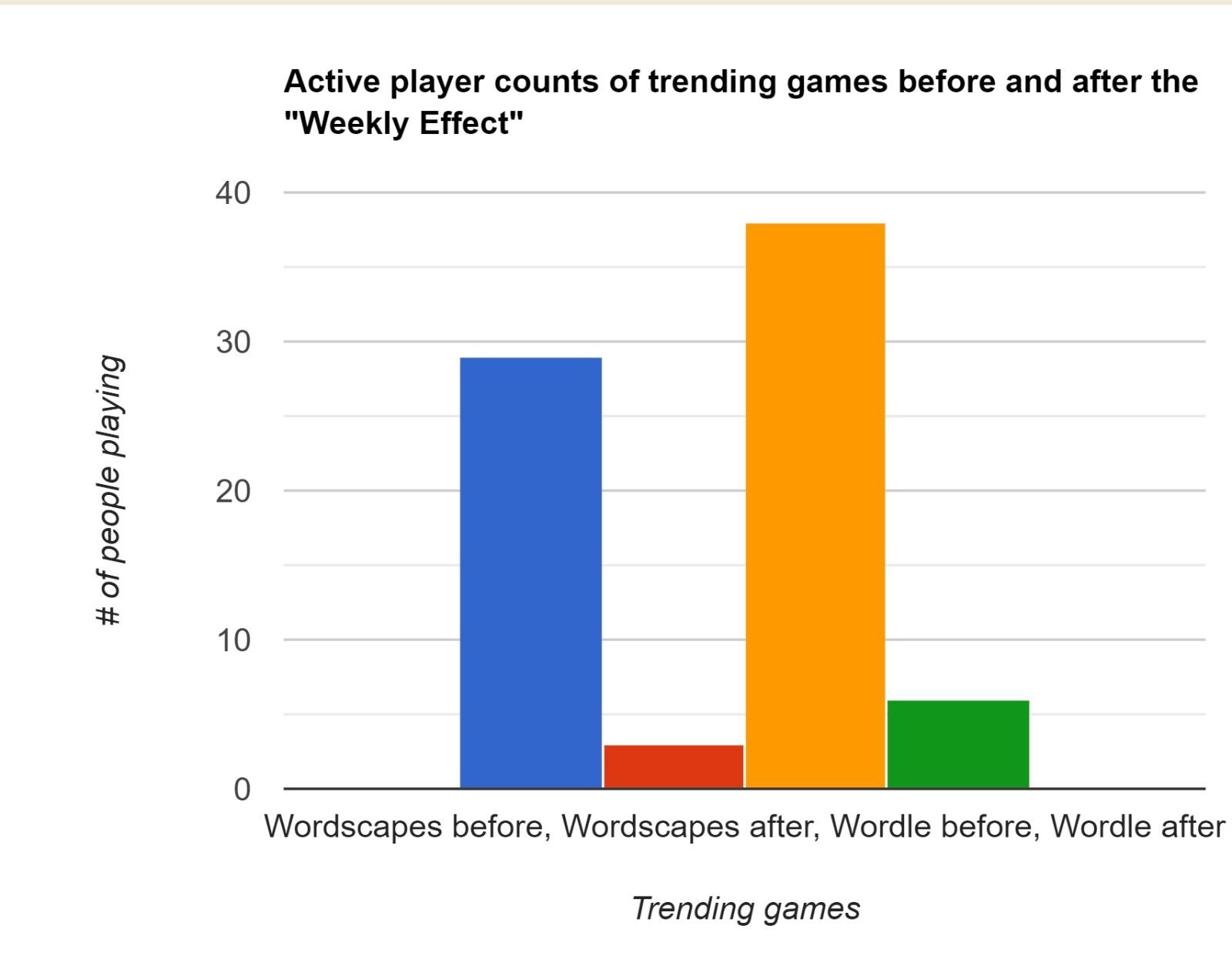
5 minute read
CYHSB WEEKLY
Cooper Yeshiva
High School for Boys
Advertisement
Volume 17, Issue 15
Weekly Puzzle: Word
Wheel Page 3
Melancholy to Exuberance: Yom
Hazikaron and Yom
Haatzmaut
Page 4
Huge Leaps in Computer Generation
Page 5
Cooper Clicks
Page 6
Parshas Acharei Mos-
Kedoshim: Finding a
Balance
Page 7
This week’s Weekly is in honor of Shayna Rachel bat
Eliyahu Z”L
Is the Weekly Killing Trends? A Deep Dive Into the Weekly Efect
Rafi Davidovics (26’)
A strange phenomenon has been happening in the CYHSB for quite some time now, but I have personally not seen anyone talking about it. Movements that appear strong enough to withstand the test of time are stifled out overnight, and trends with tons of enthusiasm become boring for us CYHSBers in what seems an unnatural amount of time. These strange occurrences made me start to think, and what I uncovered might just shock you. As I was searching for a common theme between all of these events I realized that every time a movement had died in the CYHSB it was always and I mean always right after a Weekly article was made on it. This strange phenomenon is something I like to call the “Weekly Effect.” Many movements have fallen prey to the Weekly Effect; however, if we wish to truly understand what is going on here we must go back to the first recorded Weekly Effect occurrence.
2022 was a pretty wild time, and a lot of us have some pretty wild memories, but it’s hard to forget one of the most iconic parts of 2022, Wordle. Wordle was a highly addictive word game that achieved massive success worldwide as well in the CYHSB. Many students got very into

Wordle and started WhatsApp groups with friends where they would share their scores and brag about how fast they solved the puzzle. However, one day it all just stopped. The week after an article was published in the Weekly about the Wordle craze, everyone stopped playing. Students were really shocked by this, as Senior Reuven Marvin said: “Wordle was huge in the CYHSB and every day at breakfast everyone would be competing for who can get the best score. So, of course I was shocked when it died off shortly after the article was written.” As you can clearly see, this abrupt end to a trend that was very strong came as a surprise to many students in the CYHSB. However, this was not the last case of the ominous Weekly Effect.
One recent case of the Weekly Effect is Chess.com. Chess recently took over the CYHSB by storm, and tons of people were playing every day at every break they had. It seemed like an unstoppable force, with many students obsessing over it for the sole reason of becoming the best chess player in the CYHSB. However, what was once a thriving movement became a once-in-awhile thing with usually a max of one or two people playing at a time. Freshman Amit Zalman had this to say on this particular Weekly Effect: “I was shocked when the chess trend went away in the CYHSB, it seemed like it would last for much longer. However, these days we would be lucky if we got to have one game every other day.” In Ezra Wiener’s article on the rise of chess in the CYHSB, he wrote, “Chess is a great game that allows you to think and develop strategic skills, it also is a fun way to challenge yourself. Hopefully, its popularity in school will only continue to grow.” This begs the question: with overwhelming support from the student body seen in Amit’s quote, as well as an article that seems to only motivate the movement and encourage it to thrive, how could this trend die off? Why is the Weekly Effect occurring? Before answering that question, I would like to look at one case that seemed slightly different. This trend is a very recent one: the game Wordscapes. Wordscapes, similar to Wordle, is a highly addictive word game where you have to solve word puzzles. However, there is one key difference: unlike Wordle, where you can only play one puzzle a day, in Wordscapes you can play an infinite amount of puzzles. Due to the game’s ability to play as much as you want, and the increased addictiveness, the whole school started playing Wordscapes at a much faster rate than any of the other trends. However, what really stood out to me was the drastic difference between the Weekly article covering Wordscapes and the ones that covered all the other trends. This Weekly article seemed negative, where all the others seemed positive. For example, in the Wordscapes article written by Ezra Wiener it says: “While this game might be popular, it is already showing early signs of dwindling popularity.” So, why is this case different from all the other cases? Why did a trend that was so addictive and can so quickly die so fast? And, to restate our most pressing question: Why does the Weekly Effect occur?
To answer these questions, we have to take a closer look at how the Weekly is made. Every two weeks on Monday we have our Weekly meetings, where we decide what topics we will be writing about for the next two weeks. Because of this, if something happens the Tuesday after a meeting it will not be written about for two weeks. The trends written about in the Weekly are most likely already old by the time they are written about, and this is most likely the case for most trends because of the way these trends start. The majority of trends are started by just one student over the weekend, and if it is good enough the student might bring it to school and share it with friends. They will start that process on Monday when we have our meeting, and by the time it has become a major trend it is already Tuesday or later and thus it cannot be in the Weekly for at least two weeks.

While this is a good explanation, it still does not fully explain why the trends die off so fast. To answer this question I began researching and what I found is very interesting. I found a fascinating study on popular baby names that showed that baby names that were adopted faster also went away faster. It says in the study on phys.org: “According to the results, the quicker a cultural item rockets to popularity, the quicker it dies.” This would explain why Wordscapes went away faster than all the other trends; it also caught on faster than all the other trends. Another source from proceedings of the National Academy of Sciences says, “cultural tastes that have been adopted quickly die faster.”
With all this in mind you can see why the Weekly Effect takes place. Trends don’t make it in time to the Weekly meetings; because of how fast they catch on in a small school, by the time they do make it to the Weekly the trend has already died off and the CYHSB has moved on to other things. If you want to be more fun, however, you can just believe that the CYHSB Weekly has magical powers.





